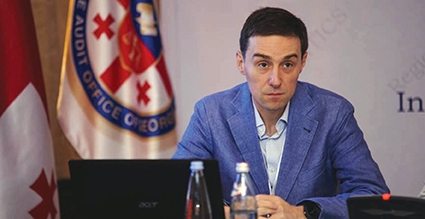What Next for Catalonia?
Exclusive interview
As Spain descends further into constitutional chaos, GEORGIA TODAY and Panorama TV Show approached Fernando Casal Bertoa, a Spanish political scientist and long-time observer on Georgia to talk about some takeaways for our country from the current Spanish conundrum.
The Spanish gov’t claims it will dissolve the Catalan autonomy, while the Catalan gov’t intends to declare independence (again) on Thursday. What is happening in Spain right now?
Basically, the Spanish government has agreed with the opposition to apply Article 155 of the Spanish Constitution suspending the autonomy of Catalonia. Given the fact the Catalan government has taken a position against Spanish and Catalan laws, Article 155 of the Spanish Constitution allows suspension of any autonomous regions if that region does not fulfill the obligations of the constitution. The start of the suspension is not yet known , the Spanish Senate have to discuss it at plenary sessions, the President of the Catalan government has been invited to give his version of the situation and then the Senate will decide whether to trigger the Article.
What will be the political cost of all of this?
The political cost is that those Catalans against independence will be upset as they may see this as intervention from the central state. At the end of the day, we know that even if the majority of Catalans are against independence, it is also true that more were in favor of celebrating the referendum of independence.
What lessons are there from Spain’s current turmoil for the post-Soviet states and specifically Georgia?
The main lesson is that when you organize a referendum, it is better to do it in consensual way: a consensus between the central government and the regions. There has been no agreement between the Catalan and Spanish governments, leading to this confrontation.
What will happen after Thursday, if the Catalan Parliament announces independence? Will there be any violence?
It is possible and will depend on various things. First, to what extent pro-independence Catalan parties and groups manage to get people out on the streets. Recently, there was also a call from pro-independence groups to take money out from the banks to create problems for the Spanish financial institutions. On the other hand, it will depend on the position of Catalonia’s regional police. If they choose to follow the orders of judges and the central government or take a position of defending their so-called new republic.
And what do you expect from local police forces in Catalonia?
This is very difficult to say. Even they are split: the issue of independence split the whole region into two. But look at what they did on the day of the referendum when they were ordered by the judges to stop the referendum process and in most cases simply stood there, forcing the central government to call in the Spanish national police. Yes, it is difficult to say, but if we look at October 1, most probably they will take the side of the Catalan government.
What do you think about Sokhumi and Tskhinvali’s attempt to establish diplomatic relations with Barcelona? If Catalonia becomes independent, should we expect recognition of our breakaway territories from them?
I don’t think Catalans are very happy about the support they are getting from Russia, from Hungary, from other regimes which are not considered very democratic. So I’m not really sure to what extent their positions are on support from conflict situations that would lead to more conflict, which they already have with the EU. I don’t think that they will go in that direction and recognize these two regions.
Vazha Tavberidze












